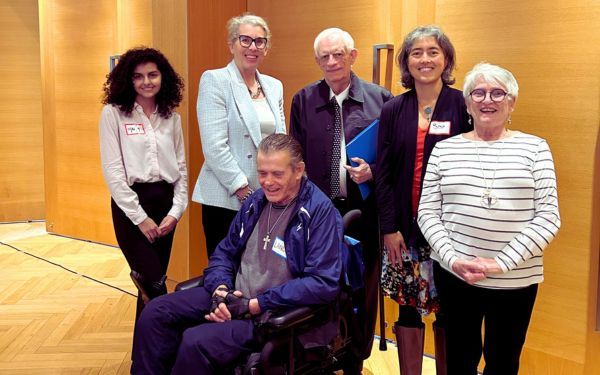New Publication Uses DAC’s Primary Care Data Holdings to Support Chronic Kidney Disease Study
In January 2025, Dr. Neda Aminnejad from York University published, Predicting the onset of chronic kidney disease (CKD) for diabetic patients with aggregated longitudinal EMR data, in the journal PLOS Digital Health.
This paper stems from a collaboration between DAC, the Fields Institute Centre for Quantitative Analysis and Modelling (Fields-CQAM), and the Vector Institute for Artificial Intelligence. The three organizations held a two-day workshop in June 2019 intended to examine the feasibility of using DAC’s National Diabetes Repository (now Diabetes Research Connect) for AI projects.
“This workshop provided an opportunity to link mathematicians from Fields and AI researchers from Vector to diabetes researchers at DAC in order to collaborate in a meaningful way to provide new insights into the prevention, detection and treatment of diabetes,” explains Conrad Pow, Senior Lead for Digital Health at DAC.
Aminnejad was a participant and led a project for Fields-CQAM at the workshop. Her subsequent study leveraged DAC’s primary care data holdings to develop a predictive model for identifying the risk of CKD in those with diabetes.
“With CKD affecting millions globally, early identification can make a significant difference in patient care and long-term outcomes,” says Aminnejad. “By analyzing de-identified electronic medical records (EMR) from the repository, our research team implemented a machine learning model capable of predicting CKD onset six months in advance with high accuracy. The model highlights critical risk factors, including kidney function markers, duration and diagnosis age of hypertension, diabetes, and osteoarthritis, as well as hemoglobin levels. These insights can support clinicians in proactive risk assessment and timely intervention.”
Aminnejad received one of three DAC Inaugural Grants to use DAC’s platform, allowing her team to do this important work.
“The National Diabetes Repository provided a comprehensive and well-structured dataset that enabled us to build a powerful predictive tool,” she says. “The secure and efficient access to real-world patient data was invaluable for this research. This study underscores the importance of data-driven healthcare and how research collaborations with Diabetes Action Canada can lead to meaningful advancements in diabetes management and patient outcomes.”
The National Diabetes Repository has now been transformed into a new platform that provides researchers access to over 1.8 million patients with all chronic condition. Diabetes Research Connect.
Learn more about Diabetes Research Connect.
Story by Krista Lamb









